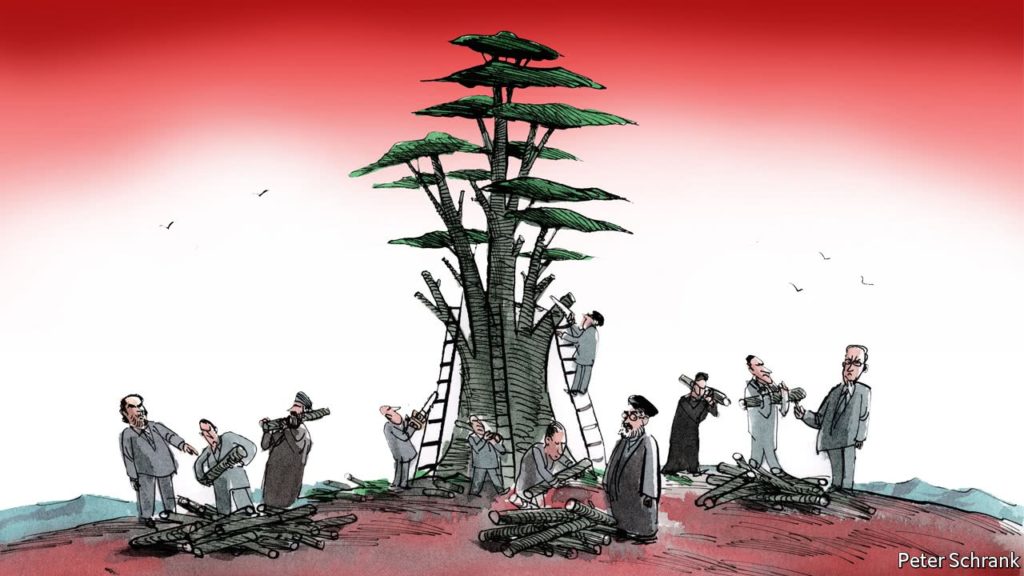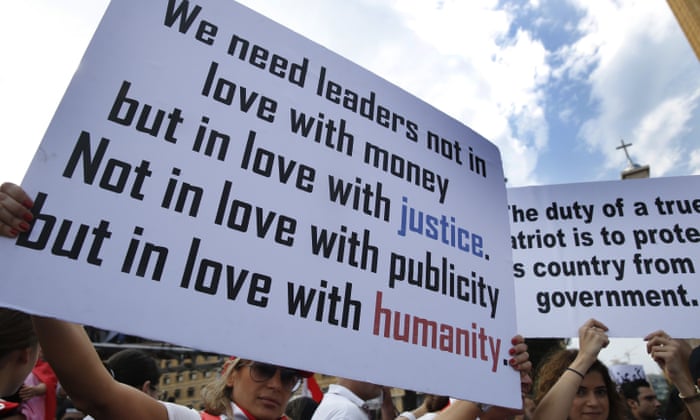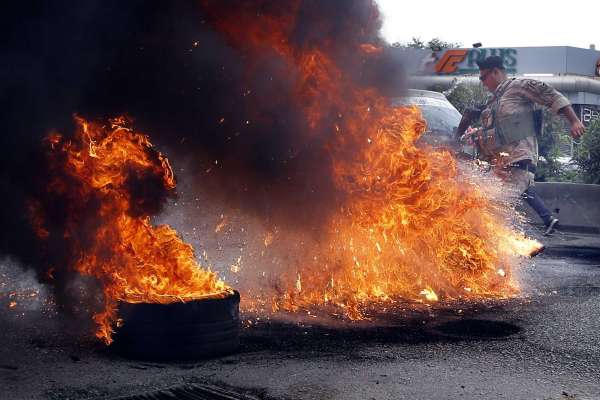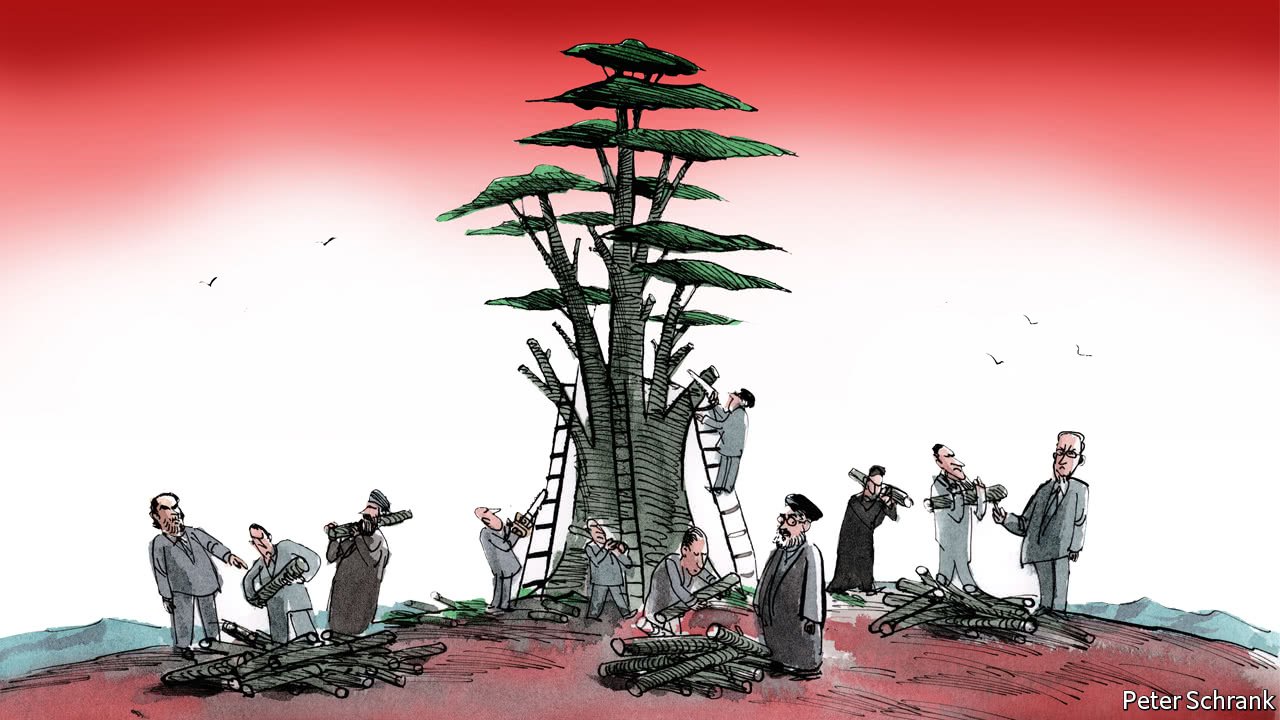By Dr. Ghassan Karam

Governments were created about 5500 years ago as a response to the challenges brought about by settlements and agriculture. (Most think that governments arose with the Sumerians around 3500 BCE). It is not an exaggeration to say that ever since then we have been discussing and arguing about the form of government and whether the notion of the state is to prosper or wither away. I am sure that we can agree for the purpose of this brief column that government has to protect the borders, provide a fair and equitable judicial system and promote general welfare through policies that foster economic stability and social justice.
We also know that in any economy the state has only two policies to deal with the economic issues: (1) Fiscal policy as practiced by the state in its expenditures and taxes and (2) Monetary policy that is geared to provide an elastic money supply needed to maintain full employment and price stability. The above two functions are not performed by the same institutions. Fiscal is the preserve of the state executive subject to legislative approval while the monetary is designed, on purpose, to be as independent from the executive and even legislative branch as possible. That independence rests on strong rational grounds. It prevents the executive from prime pumping for political reasons. Whenever a country fails to create an independent central bank then that country, most of the time, runs into huge inflationary problems generated by the political executive. The examples of such hyper inflations have been witnessed all over the world, from Germany, to Serbia, to Zimbabwe to Iraq and Venezuela.

REUTERS
All of the above is to emphasize that although one can argue convincingly that practically every major outcome is not caused by a single event ,but a multiplicity of decisions in a number of fields, yet there are events that are more responsible than others for certain outcomes.
The current Lebanese financial and economic crisis can easily be attributed to a political system that is sectarian par excellence, a system that borders on being feudalistic, a system that glorifies corruption. But within this system the monetary policy executed by the central bank has also been judged to be wanting. Actually the policies and practices of BDL have played a major role in monetizing the sovereign debt, in squandering the foreign reserves and in establishing an illegal scheme of taking money from one party in order to pay another. The fact that monetary policy was conducted in order to alleviate wrongheaded policies in the fiscal sector is not an acceptable excuse. BDL is semiautonomous and its only mission is to regulate banks to make sure that they do not misuse depositors funds. Unfortunately BDL encouraged the banks to take risks and lured them to do so with subsidies and unreasonably high returns on their capital. It is clear to me that BDL is not entitled in any way, to use the Nuremberg Defense, that wrong orders by superiors had to be executed. There are no superiors to BDL in carrying out its monetary function. Obviously the policies and various financial engineering moves by BDL were taken with the explicit knowledge and were even formulated by the head of BDL.

None of the above is to be understood that no one else besides BDL is to be held responsible for the mess that has been created for the Lebanese people. Of course the inability to fail to do anything about the problems mentioned earlier (electricity, debt, customs, corruption…) have aggravated the deficit and rendered the country dependent solely on monetary policy.
Unfortunately the politicians, as bankrupt and as incompetent as they might be, have not changed that much over the past 15-20 years. That is a sad realization that can only mean that the Lebanese public has been the biggest enabler of dysfunction in Lebanon. Yes we are the ones that have elected and reelected the same politicians that we are complaining about. I, for one, would not be surprised to find out that next time around we will reelect probably most of the politicians that have created this mess.
The Lebanese cabinet is under a moral obligation to issue a clear and detailed plan about a quick solution to each of the problems mentioned above and BDL is to be asked to reveal audited financial statements and also to be held responsible for all the pain inflicted on the Lebanese people.

Yet even if all the above is done by waving a magic wand the long run would still be as gloomy and as threatening as it has been if the Lebanese citizen does not hold its representatives responsible. Political feudalism combined with sectarianism form a combination for continued instability, corruption, incompetent policies and economic under performance.


Leave a Reply
You must be logged in to post a comment.